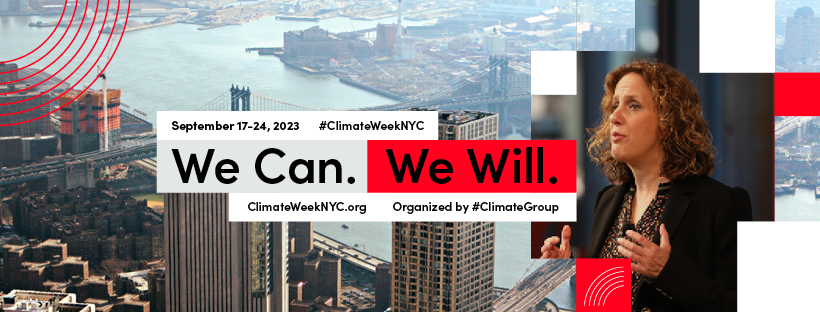Climate Week 2023

By: C. Rebecca Locker PhD, Sustainability Director, Sabert Corporation
Climate Week NYC unites global business leaders, changemakers, influencers and civil representatives around a shared mission of tackling today’s most pressing climate challenges.
People and ecosystems around the world are feeling the impacts of climate change. Yet, it's crucial to recognize that we still have the power to mitigate the worst of its potential impacts. The food industry presents significant opportunities to reduce our carbon footprint and contribute to a sustainable future.
Preserving Food, Preserving Our Planet
The food value chain is a major contributor to greenhouse gas (GHG) emissions, responsible for over a quarter of global emissions. A lot of time, energy and resources go into growing, harvesting, preparing and serving food. One of the most effective ways for foodservice ware to reduce climate impacts is by designing packaging that preserves and protects the food.
Tackling Food Waste Head-On
Food waste along the delivery chain is another significant contributor, accounting for approximately 6% of global GHG emissions. Smart food packaging design can play a pivotal role in reducing food loss due to leaks, spills, or other packaging-related mishaps. By minimizing waste, we can further our commitment to climate action.
Choosing Circular Food Packaging
Opting for packaging made from renewable bio-based materials or recycled inputs helps reduce the environmental impacts associated with the extraction and production of virgin petrochemically-based materials. Additionally, using recycled materials bolsters the demand for such resources, which is essential for fostering a robust circular economy. Designing food packaging with responsible end-of-life solutions, such as recyclability or compostability, aids in lowering GHG emissions in landfills.
At Sabert, we are grateful to the dedicated climate leaders and their “relentless determination” to work together to take climate action. Our design and innovation teams work together to design products that incorporate recycled content, protect and preserve the food and reduce food loss, and are either recyclable or compostable. In 2022, 81% of our new products contained at least 25% bio- or recycled content and were recyclable or compostable. These products offer a pathway for restaurants, supermarkets, and other food providers to move the needle on climate change.
In partnership with our supply chain, our customers, our industry and our communities, we can, and will help combat climate change.
Download Sabert’s 2022 Sustainability Report to learn more about our efforts.







